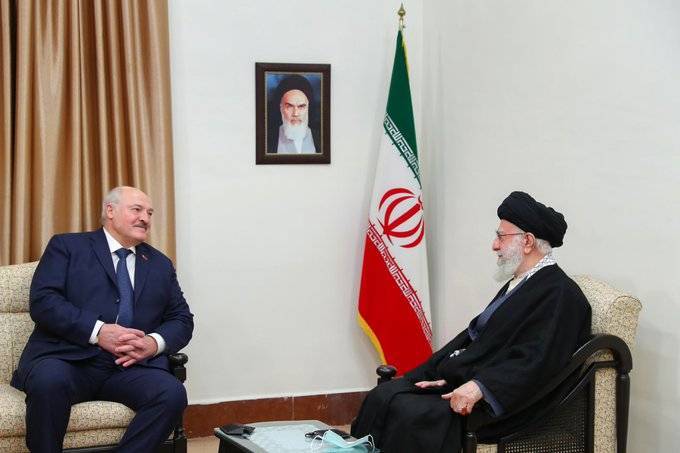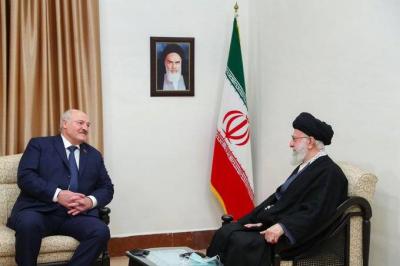Belarusian President Alexander Lukashenko announced the tripling of the bilateral trade volume with Iran, noting the possibility of elevating current cooperation to a strategic level that guarantees the interests of both countries. During his meeting in Tehran with Mohammad Baqer Qalibaf, the Speaker of the Islamic Consultative Assembly of Iran, he emphasized that "developing economic and trade cooperation is the foundation for the development of any other relations," asserting that "there is no closed door for Iran and no restrictions on the development of relations from the side of Belarus, and we are opening all our production and technology centers for you and are ready to cooperate."
Lukashenko indicated that "his country would adopt the model of banking relations between Tehran and Moscow to resolve existing banking issues between Belarus and Iran," stressing that "if there were an alliance among countries subjected to American and Western sanctions, America would certainly not be able to exploit this tool."
For his part, Qalibaf considered that "the regional and international conditions are ripe for developing relations between Iran and Belarus," pointing out that "Iran has been under pressure from Americans and their sanctions for many years, but the people have resisted, and the officials have made great efforts, and today the Americans and the West have realized that Iran has overcome maximum pressure and rendered it ineffective."
He emphasized the necessity for Iran and Belarus to have economic and financial relations, as well as cooperation in shipping and transport, especially concerning Eurasia, in addition to preferential cooperation in trade exchange, facilitating relations between traders and transportation, and establishing ties among thinkers in various fields. He called for "developing these relations to raise investments from hundreds of millions to several billion dollars."
Qalibaf also confirmed that "the relations between the two countries in Shanghai and Eurasia could make a serious and fundamental contribution to the economic field of both countries," stating that "economic development requires us to expedite the connections between the two countries in the monetary and financial sectors, linking the two central banks and all operating banks."




